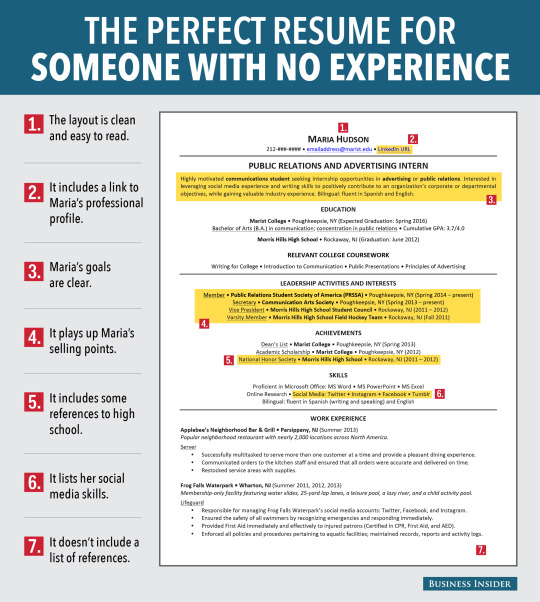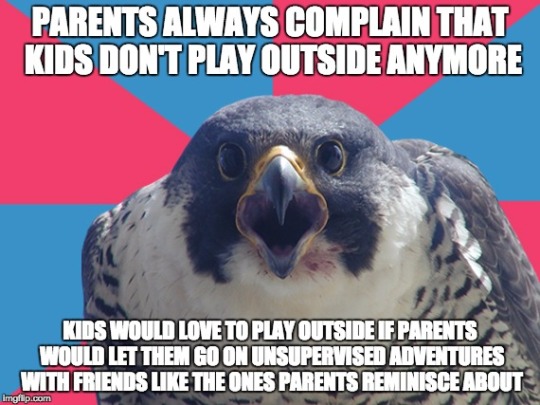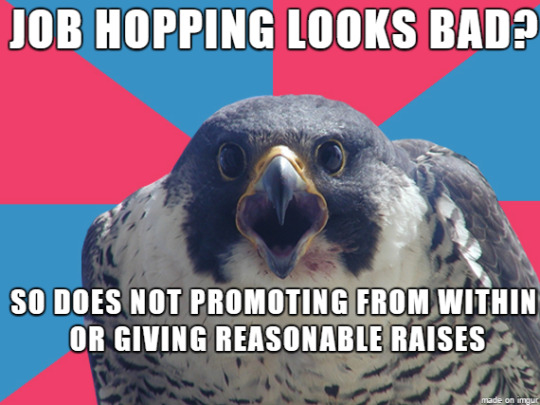Don't wanna be here? Send us removal request.
Photo










44 Best Bodyweight Exercises Ever for Women
668 notes
·
View notes
Text
Building a government
I originally posted a post in French here, which I intended to translate, and then I changed my mind and decided to create an all new post in English instead. A lot of the information from that first post will end up here, but it will be phrased differently and will have some new features.
Well, let’s dig in.
(This is very long, consider yourself warned)

Credit: Assemblée Nationale
When we talk about governments in fantasy settings, we generally think royalty, kings, queens and all that jazz. But this is very reductive of all shapes of governments which have existed on Earth through all times. Even if we focus only on the Middle Ages period, not every nation was lead by a royalty. As a reminder, Middle Ages lasted from 5th to 15th centuries approximately. That’s a long time!! Venise elected its first doge in 697, Florence was an oligarchy (the republic officially date from 1115), many city-states of the time had similar tradition of electing their leaders… But before we plunge into the shapes of governing, let’s talk about power.
I. Where does power come from?
(credits to Senna Lily)
Any person who leads a state needs power. It can be physical force, obviously, but there are other means:
Legitimate Power: it comes from the position or the title of the person. Basically, the person who was chosen as the chief by many people is the legitimate chief and has the power to act as such. It can also come from “divine power”, a formulation used by the Kings of France to mean they got their power directly from God, or be a birth right, or a vote. Legitimate power is in direct opposition to usurped power. -> What is considered legitimate in your setting?
Coercion: the ability to punish. It’s the justice system and control of the police. It’s violence and threats. It is the ability to give (or refuse to give) a reward. It’s a penalty. It’s the ability to reduce effectively others resources. It’s exile or execution. People obey, because of coercion, in the hope to get the reward, while avoiding the punishment. People who detain this power are those who command an army (generals, nobility, militia, mercenaries, police…). They may plan a Coup against the government in place if they disagree with it.
Money and Resources: it’s direct and personal access to money and resources (food, materials, equipment, technology…). In addition to trade and finance, it is also the ability to raise taxes and to own land. In many feudal countries, the whole land was once said to belong entirely to the king, who then gave it to the nobility, temporarily or permanently.
Allies: the will of people to support you, which they manifest through a vote, familial or contractual webs (including treaties). Most of the time, these alliances indicate a common interest (syndicates ally to obtain a new favorable law for employees), or in the hope of future benefit (new lands and titles given by the future new king).
Credibility: can the people believe the discourse of their government? If the people are rational, they will base their judgment on expertise and reliability. In the end, credibility is a leader’s ability to convince people to do as they say, through any means of communication (speech, press, even omens could have their use here…). Obviously, controlling the media directly or through alliances can be of great help to establish this credibility.
Information: access and ability to use information, even to hide it or to falsify it. Spies and fake news have their place, right here. Spreading lies can also be useful to hurt your enemies reputation, as well as to disturb or maintain the peace. -> who is the most informed person in your world? Is it your king, his advisor or his enemy?

Credit: picture from Miss Sloane, edited by @carol-danvers
II. The shapes of Government
Monarchy
Literally, monarchy means the government by one person, the monarch. Though we generally picture a royalty, it could also be a presidency (where the president has all powers: executive, legislative and judicial) or a dictatorship.
But even monarchies can present themselves in different shapes: elective (the Pope), constitutional (where a Constitution specify and/or limit the monarch’s powers), parliamentary (where an assembly forms a countervailing force), or absolute.
Oligarchy
In an oligarchy, a few people govern the many. A criterion determines which few lead the nation. It can be revenue, gender, age, expertise, or a combination of all.
Oligarchies are either institutional or de facto. In the first situation, the oligarch government is formalised in the laws, and it is clear who can and who can’t participate in it. In Florence, a law was created specifically to discard the nobility from the government, allowing the merchants and members of the main corporation to govern their city.
In a de facto oligarchy, the government is progressively controlled by an elite without any formalism needed. Think about how rich people have the power to exclude others just by making things (education, means of transportation…) more costly and thus less accessible to the many.
Democracy
The government by the people can be exercised directly or indirectly. Directly, everyone (some limits, such as age, can be implemented) votes for every decision. Indirectly, everyone elect representatives who then vote for every decision. You can also find democracies which mix both system, where certain decisions must be taken by everyone, while others are left to their representatives.
I mentioned only age as a limit, as it is an obvious one (people need to be able to understand the decision they’re making), but there are others. Nationality comes to mind. Just be careful not to limit citizenship too much or you could end up with a government who is a democracy in name only, like Athens was.
Empires (a side note)
Technically, empires are not a form of government. They are defined by the union of more than one people or country under a centralised power (some definitions also add expansion ambitions, and feelings of superiority). Though most infamous examples generally are monarchies, empires could very well be oligarchies or democracies.
Empires who lasted the longest had an ideology under which they could rally their population, mostly with a common religion (Christianism for the roman empire, Islam for the caliphates, Orthodoxy in Russia, Catholicism for the Habsburg…). But, though their shared ideology strengthened them, no empire ever lasted millenniums.

III. The Ideology
Every government subscribes to a certain set of ideologies, which shapes the laws and regulations they chose to implement over the people they govern.
Patriarchy / Matriarchy / Egalitarian society
(Please note, this part might give the impression, there are only two genders. My intention is not to erase non binary, genderfluid or genderqueer people, but to keep things simple, so in advance: I am sorry if I hurt anyone’s feelings).
Patriarchy and matriarchy happen when one gender take over the control of the totality or the majority of the power sources. The government will be lead by people of the dominating gender, so will be companies and religions. Values associated with the gender in power will be admired by society and laws will reinforce their status. If a person of the dominating gender shows qualities which are perceived to belong to the dominated one, they will be put on the ban of society and seen as a deviant (and same thing the other way around, btw), making them unlikely to hold any power unless they also happen to possess some useful resources or relationships.
If you create a matriarchy, please, by all means, do not make it a mirror of a patriarchy. What I mean is, don’t have women be warriors and men take care of the children. Instead, have pregnant women keep their government position without it ever being questioned, have laws which regulate the men bodies, have contraceptive drugs for men only, have values such as quietness and moderation as the highest ones, have physical strength seen as debased, have dismissive comments about men and their testosterone, have jobs associated with women seen as the most valuable (like nursing or teaching) and with the highest earnings, consider not having a marriage per say as there can be no question of who is a child’s mother…
As for egalitarian societies, they should not have any gender dominating the other, and so a government should have parity. Non-gendered inheritance laws should already exist. If your society is egalitarian, but its government is 70% male, I will call you a liar. Or you better come up with a good justification other than “women prefer to take care of their home”. In such a society, a profession can still be seen as lower, not because it is mostly occupied by one gender, but because it is associated with another taboo (think about jobs in relation with death in Japan). Laws will reflect equality between genders, either by having them forcibly inclusive (which could indicate society was not all always egalitarian), or by having them implicitly inclusive through the use of a genderless language*.
* I am not saying the language of a society, which was always egalitarian, is necessary genderless, but that the law will use words which erase gender: instead of man/woman, you’ll use person/citizen.
Capitalism / Socialism
Though capitalism and socialism are the two antonymous economic systems, most States have implemented mixed systems, leaning more on one side of the equation than the other depending from the set of values their leaders adhere to. All States, even the most liberal, are forced to embrace some social values as the only mean to ensure the creation and maintenance of basic infrastructures such as roads.
In capitalism, all the means of production are privately owned in the aim of profit. In consequence, investments are decided by the owners of resources and, in theory, prices and distribution are decided through competition. Other common characteristics to capitalist systems include: accumulation of capital, waged labor, price system, competitive markets, voluntary exchange (often formalized with a contract).
Different models of capitalism exist. Corporate capitalism is dominated by hierarchical and bureaucratic corporations. In State capitalism, the state-owned companies dominate the market where they seek to make profits. Advanced capitalism is our global modern system characterized by the concentration of activities in a few large firms or groups, a reliance on the State to stabilize the markets, and wages used as incentives. Financial capitalism is dominated by the people who own the funds (the banks or private loaners) and generally born from a commercial capitalism…
Socialism was first and foremost thought as the opposite of individualism. Other words have been used to qualify a socialist economy, such as co-operative, mutualist, associationist and communist. The distinction between socialism and communism only date from the Bolshevik Revolution of 1917.
Obviously, because of the way it was constructed, socialism is very critic of capitalism. Its main reproaches are the creation of wasteful industries and practices, a will to create demand instead of satisfying the pre-existing one, the pursuit of irrational activities which results in economic bubbles and the concentration of power and wealth in the hands of a few people.
Socialism’s goal is to reduce poverty, social oppression, and disparities in wealth. To accomplish this, it puts community first and encourage the shared ownership of resources. Its main means are economic planning and scientific administration. It also tries to achieve, through incentives coming from the top (i.e. the government) a social environment which would be more favorable to the system.
Finally, socialism also considers creativity to be essential to human nature, and one of the finality of this ideology is to reduce the length of labor to ensure everybody has the time to engage in their creativity.
Fascism / Nationalism
Though both ideologies have a few things in common, they are not one and the same. Also, not everybody agree on what past governments should be called fascist (some suggest that Nazi Germany is not, some say it is…).
Nationalism is, for a people, to preserve or gain sovereignty over its “homeland” (the limits of said homeland may go beyond what the people of the nation inhabit and result in expansionist strategies). Nationalism implies the definition of a national identity with its culture, its language, its religion, its belief in a singular history. Generally leaders of such a movement/State will talk about a cultural renewal (or its preservation), and use rallying symbols recognizable by all (such as flags, anthems, clothes…).
Let’s note, it is possible to imagine a multinational nationalist State, where every national minority would be able to express freely its national identity (with even the possibility of having representatives for each minority). The feeling of unity, of a nation would emerge from the will of the people to continue to live together in a multicultural society. Common symbols would reflect the diversity of its people.
As for fascism, though we find the same mythic core and use of symbols, it distinguishes itself from nationalism by its inherently violent nature. Indeed, fascism consider that not all violence is negative and that political violence, war and imperialism can bring national rejuvenation.
Fascism is also characterized by the suppression of all opposition, often with the complicity of the elites in place, by a mixed economy to attain the goal of self-sufficiency through protectionism and interventionist policies, by military citizenship where everybody’s role is well defined and masculinity is promoted, by self-determined culture and victimhood to oppose a previous period of decadence (often imaginary) and give birth to a cult of unity and purity, which can only be achieved through the purge of the “degenerates”.
Religion
Religion and power instances have been intertwined throughout History, either by the interpretation of omens (such as flying birds) before an important decision, or by providing advisors to the State (Mazarin and Richelieu’s names come to mind), or by establishing a temporal State lead by a timeless authority (the Vatican).
Religion have permeated our cultures and our laws. Even secular States, such as modern France, are still under the influence of religion. Breaking away from it has required social changes followed or paralleled by legal changes.
Sometimes, these changes have merely reflected the passing of a religion’s influence in favor of another (the Roman empire was polytheist before embracing christianism).
What taboo, what family structure are seen as prominent by the dominant religion will very likely be reflected in the laws and in the government structures. Furthermore, in the presence of a well organized religion, such as the Catholic Church, one must acknowledge not only its moral power, but also its economical one. It is not without good reason the French Revolution chose to abolished all Church’s privileges (suppression of a special tax, nationalization of its properties…).
Conservatism / Progressivism
Conservatism is defined, first and foremost, by its attachment to traditions. Obviously, depending of where and when, what people call traditions may look very different. A conservative government will do its best to keep the statu quo, to slow changes and transformations, especially social and economic ones. Conservatism also embrace organic solidarity (born from the specialisation of economic actors and forcing them to collaborate because of their interdependence), stability and continuity, as well as the defence of property rights.
When conservatism tends to radicalism, its discourse will change from maintaining the traditions, to their regeneration, implying the model (often idealised past) has been lost and needs to be restored for the wellbeing of society.
On the other hand, progressivism embrace change and reforms as a way to improve society. It encourages changes at all levels (social, economic, scientific, technologic…) as the one and only way to improve human condition. This definition may give you the impression progressivism is necessarily better, but let’s not forget that, in the past, it has been associated with eugenics and alcohol prohibition. What is seen as progressive depends greatly on what is perceive as tradition in your universe.
In all honesty, I could keep talking about ideologies, because they are so diverse and cover so many subjects. In the end, you should remember only two points when it comes to ideology : how your government think society should work, and how it intends to achieve that ideal.

Resources
Links: - 16 types of governments infography - List of forms of governments on Wikipedia - Ted-Ed Athenian Democracy - On Mythcreants: Matriarchies, patriarchies and beyond, Creating matriarchies - Amazing series about politics by Senna Lily “Politics : The Game, The Board, The Players” - 1st part (credits go to her for the first part of this article)
a few articles by @wondrousworldbuilding about Politics and about Factions,
Books: (I could not find translations for the titles in French) - Nouveau manuel de science politique, Editions La Découverte (a class book for politic sciences, very heavy, maybe start with something else to read on the subject) - La cité dans le monde grec, Raoul Lonis, Editions Armand Colin (3rd part mostly) - The prince, Machiavel - Bréviaire des politiciens, Cardinal Mazarin, Editions Arléa - The Communist Manifesto, Karl Marx and Friedrich Engels - The Analects, Confucius - The Spirit of the Laws, Montesquieu - The Art of War, Sun Tzu (the book talks about war strategies, but they can apply to other contexts, including politics) - The Republic, Plato - Politics, Aristotle
you can find a pretty nice goodreads list here, it references a lot of classics about politics.
Final Words
If you’re still here, congratulations, you’re done !!
I merely wanted to write one last thing: if you have questions, you can drop me a message anytime. It doesn’t matter if your question is directly related to this post or not, or if it is something very specific in relation to the politics of your universe. I may not be an expert on the subject but I’m more than willing to give you my two cents, if you need help :)
Keep reading
5K notes
·
View notes
Photo

Infographic: 7 Reasons This Is An Excellent Resume For Someone With No Experience
373K notes
·
View notes
Text
Resources For Writing Sketchy Topics

Medicine
A Study In Physical Injury
Comas
Medical Facts And Tips For Your Writing Needs
Broken Bones
Burns
Unconsciousness & Head Trauma
Blood Loss
Stab Wounds
Pain & Shock
All About Mechanical Injuries (Injuries Caused By Violence)
Writing Specific Characters
Portraying a kleptomaniac.
Playing a character with cancer.
How to portray a power driven character.
Playing the manipulative character.
Portraying a character with borderline personality disorder.
Playing a character with Orthorexia Nervosa.
Writing a character who lost someone important.
Playing the bullies.
Portraying the drug dealer.
Playing a rebellious character.
How to portray a sociopath.
How to write characters with PTSD.
Playing characters with memory loss.
Playing a pyromaniac.
How to write a mute character.
How to write a character with an OCD.
How to play a stoner.
Playing a character with an eating disorder.
Portraying a character who is anti-social.
Portraying a character who is depressed.
How to portray someone with dyslexia.
How to portray a character with bipolar disorder.
Portraying a character with severe depression.
How to play a serial killer.
Writing insane characters.
Playing a character under the influence of marijuana.
Tips on writing a drug addict.
How to write a character with HPD.
Writing a character with Nymphomania.
Writing a character with schizophrenia.
Writing a character with Dissociative Identity Disorder.
Writing a character with depression.
Writing a character who suffers from night terrors.
Writing a character with paranoid personality disorder.
How to play a victim of rape.
How to play a mentally ill/insane character.
Writing a character who self-harms.
Writing a character who is high on amphetamines.
How to play the stalker.
How to portray a character high on cocaine.
Playing a character with ADHD.
How to play a sexual assault victim.
Writing a compulsive gambler.
Playing a character who is faking a disorder.
Playing a prisoner.
Portraying an emotionally detached character.
How to play a character with social anxiety.
Portraying a character who is high.
Portraying characters who have secrets.
Portraying a recovering alcoholic.
Portraying a sex addict.
How to play someone creepy.
Portraying sexually/emotionally abused characters.
Playing a character under the influence of drugs.
Playing a character who struggles with Bulimia.
Illegal Activity
Examining Mob Mentality
How Street Gangs Work
Domestic Abuse
Torture
Assault
Murder
Terrorism
Internet Fraud
Cyberwarfare
Computer Viruses
Corporate Crime
Political Corruption
Drug Trafficking
Human Trafficking
Sex Trafficking
Illegal Immigration
Contemporary Slavery
Black Market Prices & Profits
AK-47 prices on the black market
Bribes
Computer Hackers and Online Fraud
Contract Killing
Exotic Animals
Fake Diplomas
Fake ID Cards, Passports and Other Identity Documents
Human Smuggling Fees
Human Traffickers Prices
Kidney and Organ Trafficking Prices
Prostitution Prices
Cocaine Prices
Ecstasy Pills Prices
Heroin Prices
Marijuana Prices
Meth Prices
Earnings From Illegal Jobs
Countries In Order Of Largest To Smallest Risk
Forensics
arson
Asphyxia
Blood Analysis
Book Review
Cause & Manner of Death
Chemistry/Physics
Computers/Cell Phones/Electronics
Cool & Odd-Mostly Odd
Corpse Identification
Corpse Location
Crime and Science Radio
crime lab
Crime Scene
Cults and Religions
DNA
Document Examination
Fingerprints/Patterned Evidence
Firearms Analysis
Forensic Anthropology
Forensic Art
Forensic Dentistry
Forensic History
Forensic Psychiatry
General Forensics
Guest Blogger
High Tech Forensics
Interesting Cases
Interesting Places
Interviews
Medical History
Medical Issues
Misc
Multiple Murderers
On This Day
Poisons & Drugs
Police Procedure
Q&A
serial killers
Space Program
Stupid Criminals
Theft
Time of Death
Toxicology
Trauma
295K notes
·
View notes
Video
tumblr
Excuse me, are you the guy who did an entire Law & Order episode for his audition?
4K notes
·
View notes
Photo






I unno what meme this is, but I’m here for this.
273K notes
·
View notes
Text
okay but waking up in the middle of the night to soft rain and knowing you’ve still got hours to sleep, when you’re toasty warm and comfortable & sleep has made you forget all your worries and responsibilities and u go back to sleep feeling as content as ever
743K notes
·
View notes
Photo

John Oliver, Richard Ayoade, and David Mitchell at Uni.
10K notes
·
View notes
Quote
When I remember it, I think of it as dancing. Dancing with eyes half closed because to open them would break the spell. Dancing as if language had surrendered to movement - as if this ritual, this wordless ceremony, was now the way to speak, to whisper private and sacred things, to be in touch with some otherness. Dancing as if the very heart of life and all its hopes might be found in those assuaging notes and those hushed rhythms and in those silent and hypnotic movements. Dancing as if language no longer existed because words were no longer necessary…
Michael Evans, Dancing at Lughnasa (via iamsupposedtobebritish)
120 notes
·
View notes
Text
Sometimes I’m overwhelmed with the insatiable desire to learn. To know astronomy and geography and language and architecture; to recognize each constellation, planet, and star; to speak and understand all languages, be able to decipher ancient Greek and Latin text; to grow my understanding of how the human body works; study the differences and similarities of each religion; recognize the use for each herb and seed and sapling.
I want to better myself, not for fame or recognition or power. I just want to understand.
94K notes
·
View notes
Text
my history professor was talking today about a guy who was a phd student at the same university as him who recently had a mid life crisis and moved to poland and learned like 4 slavic languages so that he could “properly research” ww2 and honestly????? #goals
5K notes
·
View notes
Quote
Every city has a sex and an age which have nothing to do with demography. Rome is feminine. So is Odessa. London is a teenager, an urchin, and in this hasn’t changed since the time of Dickens. Paris, I believe, is a man in his twenties in love with an older woman.
John Berger (via studivation)
7K notes
·
View notes
Text
5 Reasons You Shouldn’t Trust SeaWorld
1. They blatantly lie to the public. Even though most people know the truth, SeaWorld hopes that they can continue to get away with lying and cherry-picking data. They still claim that they do not separate mother and calf (lie - some whales were taken as young as three years old), dorsal fin collapse is normal among wild whales (lie - slight ABNORMALITIES such as ripples or notches in the fin are common in some groups of whales, but full collapse is rare and usually a result of injury), captive whales live as long as wild ones (lie - once they actually used part of a study that gave dramatically lower life expectancies because the population studied was suffering a food shortage. SeaWorld did not note that once the whales had more food, the life expectancies rose back to normal), and they lead people to believe the worn, broken, and drilled teeth of their whales is normal (lie - only certain populations of wild orcas develop tooth wear from feeding on mammals with tough skin, like sharks and rays. Captive orcas suffer dental problems as a result of chewing on concrete walls and metal gates). 2. No one on their board of directors can claim a background remotely related to zoology, animal behaviour, marine biology, or or veterinary science. For a company that constantly talks about how deeply ingrained their roots are in conservation and education, you’d think at least some of the people running the show would come from backgrounds that reflect that. Nope. All businessmen who went to school to learn how to make a profit. 3. They love to blast the rescue, rehab, and release of Keiko the whale - but it just makes them look even worse. Keiko, the star of Free Willy, was sick and dying in a warm tank in Mexico. Children from all over the world asked that he be allowed to be free, just like Willy was. Eventually, after a lengthy rehab process, Keiko was able to swim in the ocean for the first time in decades. He gained weight, became healthy, and embarked on an epic journey covering 1000 miles of open ocean. When he turned up in Norway he was in great physical condition and had clearly been able to feed himself during the adventure, as he had not lost any weight. Keiko passed away in 2003 of pneumonia after being able to once again experience life as a wild orca. SeaWorld condemns anti-captivity activists for their role in Keiko’s release, saying it was a complete failure, and Keiko would have been much better off at one of their parks. They assert that Keiko’s death proves that the rehab and release of captive whales does not work and should never be attempted again. What they don’t mention: SeaWorld had in fact been asked to take Keiko in, and they refused him. Pneumonia has caused the deaths of many whales in SeaWorld’s care. And lastly, going by SeaWorld’s logic, if one whale dying after being released means releasing orcas simply cannot work, why doesn’t the death of 160 orcas in captivity prove that keeping them in tanks doesn’t work? 4. They talk a lot about how the wild is a scary and dangerous place where whales are struggling to survive - even though they are the ones that decimated a population of whales to the point where they could not recover. The Southern Resident Killer Whales are an endangered group of whales who have been struggling to rebound since more than 40% of their population was removed or killed during the captures of the 60′s and 70′s. They face other serious threats today such as pollution and lack of food, but it’s reasonable to say that if SeaWorld had not damaged their numbers irreparably all those years ago, they might be on the winning end of things instead of slipping slowly towards extinction. SeaWorld has never acknowledged their role in the Southern Resident’s plight, nor apologized for it, while anti-captivity activists continue to fight for their survival. Even if we take the Southern Residents out of the equation, it is absolutely ridiculous to suggest that whales would rather live in captivity than “risk it” out in the wild. These are the top predators of the ocean, highly evolved and adapted. They are hard-wired for life in the wild, where they are constantly enriched and stimulated, constantly challenged, always learning and surviving and passing down that ancient knowledge to their kin. NO ORCA EVER has asked to be torn from its family for life in a barren swimming pool where it will dine on dead fish, stare at walls, and do flips for tourists. 5. They constantly talk about how their whales are healthy, thriving, and important as “Ambassadors for their species”. Captive whales, most notably those at SeaWorld, are known to be medicated heavily on a daily basis. Pills to combat ulcers, bacterial and fungal infections, anxiety and stress, sunscreen in an attempt to prevent sunburns, gelatin to keep the whales hydrated…it is simply illogical and ridiculous to say that animals who require this amount of medication and preventative measures, just to keep them alive, are healthy and thriving. On top of being filled with drugs, the orcas often display stereotypic behaviours, including but not limited to, swimming the same pattern for hours, bobbing up and down repeatedly, pressing their head and other body parts against the walls, chewing on concrete, beaching themselves on slide-outs, blowing bubbles against the tank walls, floating motionless for long periods of time at the surface, and floating down to the bottom of the pool in a catatonic and unresponsive state. Deprived of mental or physical stimulation and unable to perform any of their natural behaviours, the whales suffer greatly. These captive whales are so dramatically different from their wild counterparts that it makes them practically useless to study and even more useless for education and conservation. The marine circus and the sad lives that these animals live are absolutely not educational in any way. The only thing to be learned from watching a whale swim around in an empty tank is that it’s okay to exploit intelligent and sensitive beings for the sake of gimicky entertainment. (x)(x)(x)(x)(x)(x)(x)(x)(x)
2K notes
·
View notes










